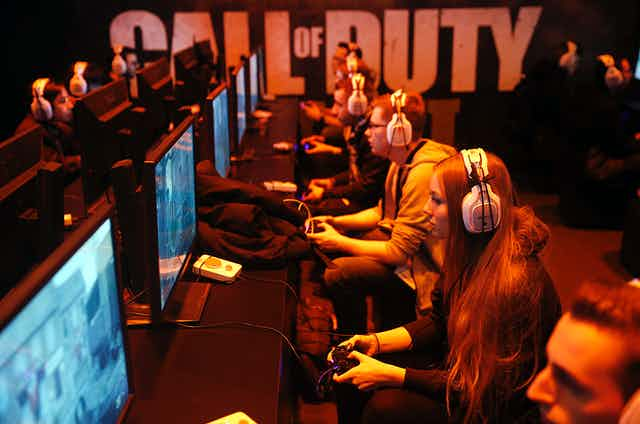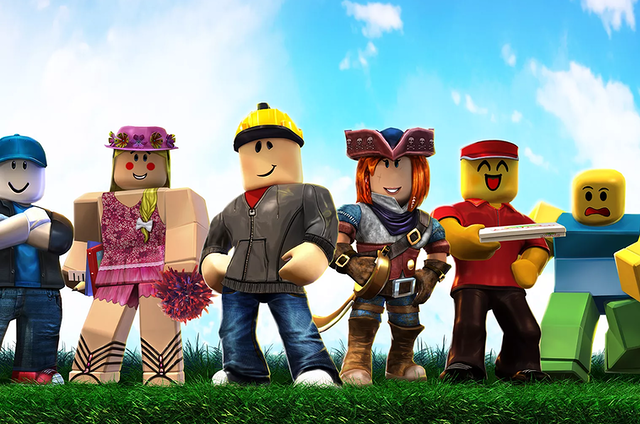The Activision Blizzard lawsuit shows gamer culture still has a long way to go: 5 essential reads about sexual harassment and discrimination in gaming and tech
Sex-related harassment in player society burst back right into the spotlight on July 21, 2021, with information of California’s suit versus Activision Blizzard, author of top-selling computer game Call of Duty, Globe of Warcraft and Sweet Crush, and a walkout by company workers. The suit alleges a “pervasive ‘frat boy’ society" at the company and discrimination versus ladies in pay and promo.

The chaos is an resemble of the notorious Gamergate episode of 2014 that featured an arranged online project of harassment versus female players, video game developers and video pc gaming reporters. The allegations are also of an item with a decadeslong background of sex discrimination in the technology area.
We’ve been covering sex-related harassment and sex discrimination in video pc gaming – and technology typically – and picked 5 articles from our archive to assist you understand the information.
- 1. 1. Video pc gaming society is harmful – but community standards can change it
- 2. 2. It is not simply gamers – followers belong to the problem
- 3. 3. Collegiate esports organizations do not reflect the populace of videogame gamers
- 4. 4. Lessons from the technology area: Variety and equity require ladies with power
- 5. 5. The misconception of meritocracy is an impediment to equal rights
1. Video pc gaming society is harmful – but community standards can change it
Points have not been obtaining steadily better. The shift to online tasks triggered by the pandemic was gone along with by an increase in online harassment and a reduction in the variety of ladies and women having fun computer game.
Greater than a 3rd of female players have skilled harassment, and female gamers have developed coping strategies such as concealing their sex, having fun just with friends and shutting down harassers by outplaying them, inning accordance with College of Oregon teacher Amanda Cote. These strategies take energy and time, and they avoid instead compared to challenge the harassment. Challenging harassment is also fraught, because it typically triggers a reaction and places the concern on the sufferer.
Shutting down harassment comes to producing and sustaining community standards that decline instead compared to permit or motivate harassment. Video pc gaming companies can adopt methods past prohibiting harassers that dissuade the habits before it happens, consisting of decreasing opportunities for dispute beyond gameplay, including in-game acknowledgment of etiquette, and reacting quickly to grievances.
“If esports proceed to expand without video game companies addressing the harmful atmospheres in their video games, violent and exclusionary habits are most likely to become entrenched," she composes. “To avoid this, gamers, trainers, groups, organizations, video game companies and live-streaming solutions should spend in better community management initiatives."
2. It is not simply gamers – followers belong to the problem
Most likely to any sporting activities arena and you will see that the atmosphere that energizes gamers and followers alike originates from the followers. For esports the venues are streaming solutions, where follower response comes not from joys and incantations but through online chat.
College of Southern Florida teacher Giovanni Luca Ciampaglia and associates evaluated chats on Twitch, among the biggest streaming solutions that brings live esports. They found a sharp difference in the language followers use when discussing gamers, called streamers, depending upon sex.
“When watching a guy stream, viewers typically discuss the video game and attempt to involve with the streamer; video game lingo (words such as ‘points,’ ‘winner’ and ‘star’) and user nicknames are amongst the essential terms," he composes. “But when watching a lady stream, the tone changes: Video game lingo drops, and objectification language increases (words such as ‘cute,’ ‘fat’ and ‘boobs’). The distinction is especially striking when the banner is popular, and much less so when looking at discuss less-popular streamers’ task."
As with the video games themselves, combating harassment and discrimination on streaming solutions comes to community requirements, he composes. The streaming solutions “need to examine their social standards to eliminate harmful requirements that effectively silence whole teams."
3. Collegiate esports organizations do not reflect the populace of videogame gamers
Esports is ending up being an industry, with over $1 billion in incomes, and collegiate organizations are an important element of the area. Simply over 8% of university esports gamers and 4% of trainers are female. The reduced prices of involvement are not a representation of rate of passion: 57% of ladies ages 18-29 play computer game that remain in the esports category.
Female gamers face obvious hostility and harassment, which discourages involvement, inning accordance with SUNY Cortland teacher Lindsey Darvin. University groups often participate in tokenism by causing a solitary female gamer, and the vast bulk of scholarships most likely to man gamers.
Professional esports companies are beginning to address the sex space. Institution of higher learnings need to do the same.
“Institution of higher learnings that receive U.S. government aid have a responsibility to improve opportunity and access to involvement based upon Title IX plan, which restricts sex discrimination in any education and learning program or task receiving government monetary assistance," she composes.
4. Lessons from the technology area: Variety and equity require ladies with power
The origins of esports’ harmful society depend on years of sex discrimination in the technology area overall. That discrimination has proved persistent.
“In 1995, introducing computer system researcher Anita Borg tested the technology community to a moonshot: equal depiction of ladies in technology by 2020," composes Rensselaer Polytechnic Institute teacher Francine Berman. “Twenty-five years later on, we’re still much from that objective. In 2018, less compared to 30% of the workers in tech’s greatest companies and 20% of faculty in college computer system scientific research divisions were ladies."
Turning around discrimination refers changing societies within companies. “Varied management is a crucial component of producing varied societies," she composes. “Ladies are more most likely to flourish in atmospheres where they have not just stature, but obligation, sources, influence, opportunity and power."
“Society change is a marathon, not a sprint, requiring continuous vigilance, many small choices, and often changes in that holds power," she composes. “My experience as supercomputer facility going, and with the Research Information Partnership, the Sloan Structure and various other teams has revealed me that companies can produce favorable and more varied atmospheres."
5. The misconception of meritocracy is an impediment to equal rights
The misconception of meritocracy is a large component of the durability of sex discrimination in the technology area. That misconception says that success is an outcome of ability and initiative, which women’s depiction is a representation of their capcapacities.
In the U.S., ladies own 39% of all independently owned companies but receive just about 4% of endeavor funding financing, inning accordance with Brownish College teacher Banu Ozkazanc-Pan.
“Yet the meritocracy misconception, which my research shows has a stronghold on the planet of entrepreneurship, means that ladies are constantly informed that they need to do to have more of that $22 billion or two in endeavor funding financing is make better pitches or be more assertive," she composes.
What the technology area phone telephone calls meritocracy remains in truth gender-biased and outcomes in mainly white guys acquiring access to sources and financing. “By proceeding to count on meritocracy and preserving methods associated with it, sex equal rights will remain a far-off objective," she composes.
Adopting gender-aware approaches, consisting of setting concrete objectives for sex balance, is key to correcting the imbalances triggered by the meritocracy misconception.






